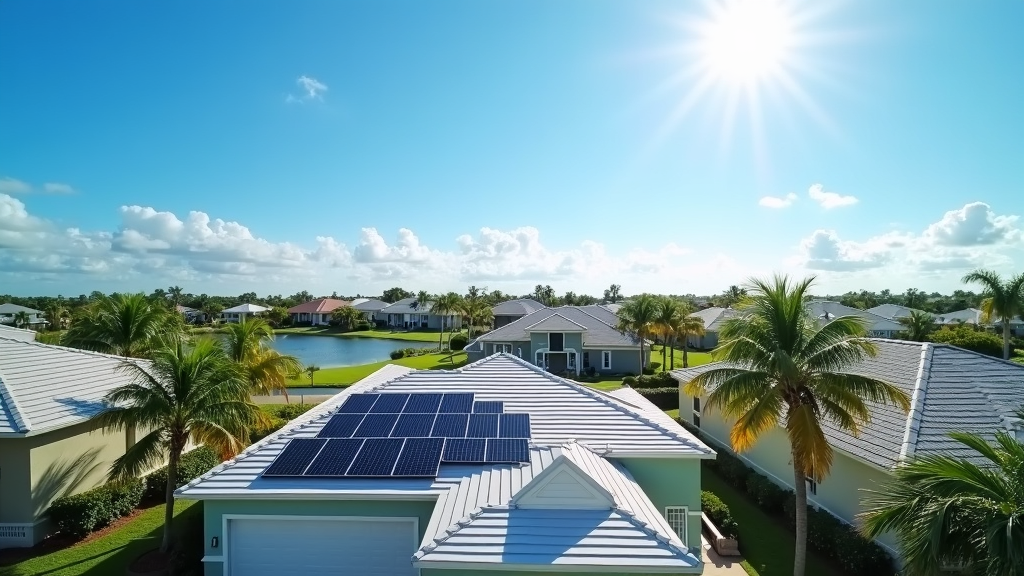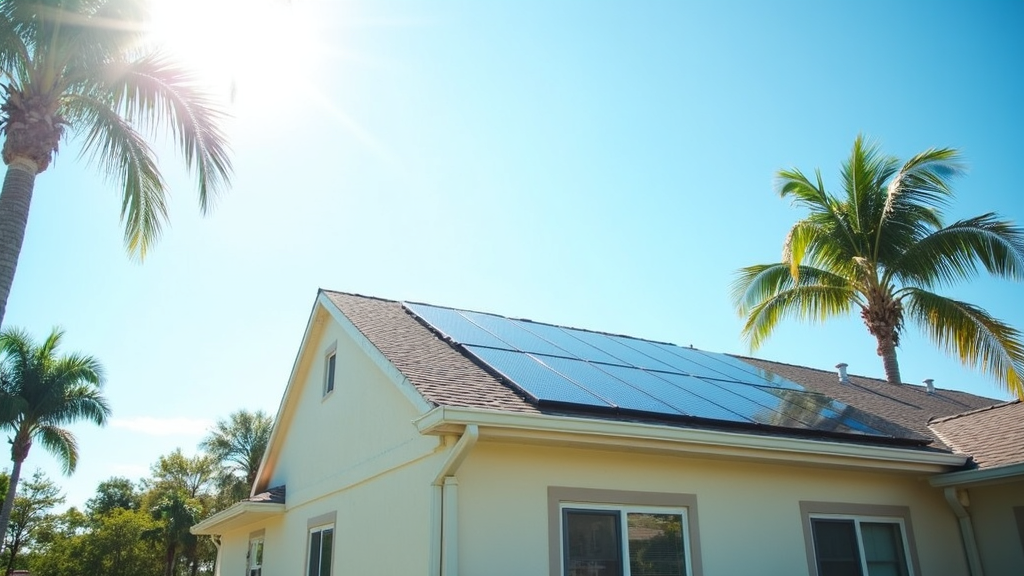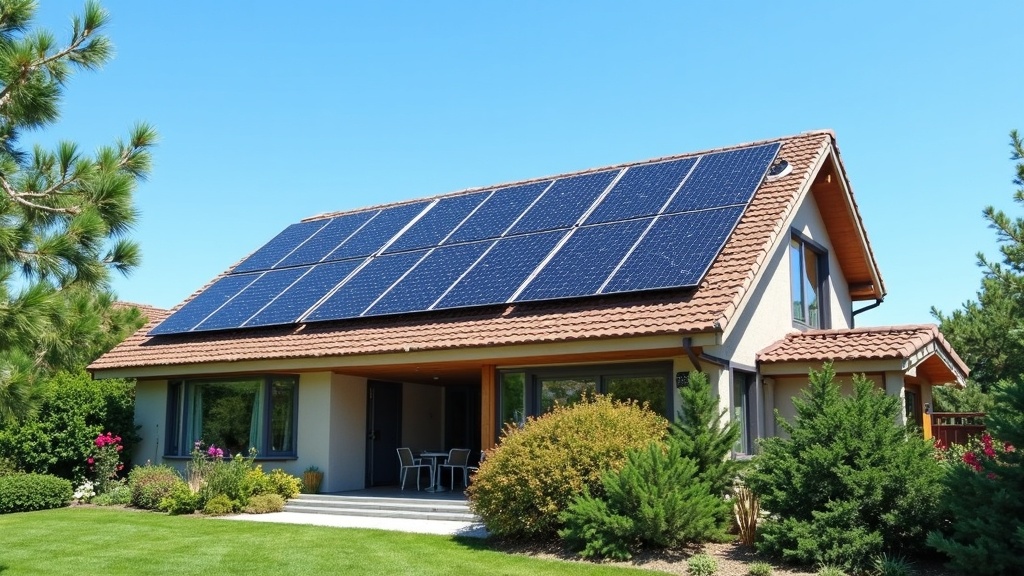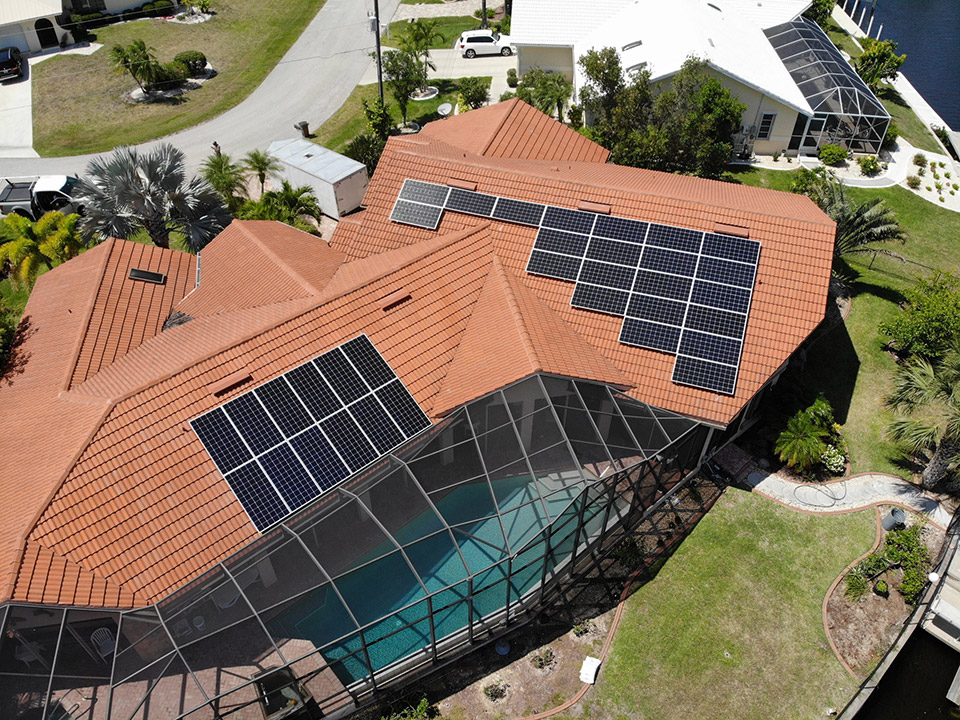Residential solar panels are becoming more visible in Fort Myers, Florida, and there’s a big reason why. For homeowners eager to save a bit on power bills or to make their home greener, solar power can sound like a fantastic fix. But adding solar panels to your house is a decision with some twists and turns. To help you weigh things out, I’m breaking down the main pros and cons of residential solar panel installation, especially from what I’ve seen and learned living right here in Florida.

Solar Panels: Why People Install Them at Home
People in Fort Myers are pretty familiar with sunshine, so using solar power makes sense for a lot of homes. Before you get into the fine print, it helps to know why solar panels get so much attention. Solar panels capture sunlight and change it into electricity you can use at home. They connect right to your home’s electrical system and can work even if you’re still tied to the regular power grid.
The past decade has made solar panel technology more affordable, and utility companies in Southwest Florida often support solar in different ways. Advanced options like battery backup systems and new financing models make solar panels more approachable. Whether it’s the promise of lower energy bills or a push towards environmental responsibility, the motivations vary quite a bit from one homeowner to another.
More homeowners these days are attracted by the fact that solar energy is a renewable resource that doesn’t directly create pollution when producing power. Having solar panels at home is also an opportunity to take advantage of current federal tax incentives, such as the federal Investment Tax Credit, which can knock down the initial cost significantly for those who qualify. Some local programs even offer additional rebates or help with permitting fees, sealing the deal for many residents of Fort Myers.
What to Know Before Installing Solar Panels in Fort Myers, FL
Making the switch to solar at home isn’t something to rush. Here’s what you’ll want to consider before getting into contracts or talking to installers:
- Roof Suitability: Solar panels usually need a solid, mostly sunfacing roof. The best placement here is usually a south or southwest facing roof without too much shade from trees or neighboring buildings.
- Local Regulations: Fort Myers and Lee County have their own rules for building permits and electrical connections. Most solar installs need a city permit and utility approval.
- Homeowner Association (HOA) Rules: Some HOAs have guidelines about visible panels or changes to home exteriors. Florida law protects many solar rights, but it’s worth double checking community rules.
- Budget and Financing: The average upfront cost for a solar panel system in Fort Myers, after available rebates and tax credits, can still feel like a lot, though it’s been dropping steadily in recent years. Loans, leases, and power purchase agreements are all options on the table depending on your budget and goals.
You should also think about your future plans for the house: If you’re planning on moving within the next few years, weigh the odds that solar will pay for itself before you leave. Additionally, make sure the age and condition of your roof are solid, as most installers require a roof in good condition before putting up panels. It might also make sense to check how old your roof is and if you’ll need a replacement in the next ten years.
Benefits of Adding Solar Panels to Your Home
Plenty of homeowners feel good about their choice after making the switch. Here’s a look at some of the biggest upsides:
- Lower Electricity Bills: Once panels are up and running, there’s an immediate dip in monthly electricity costs. I’ve chatted with neighbors who see savings within their first billing cycle, especially if their homes use a lot of air conditioning.
- Net Metering: Florida’s net metering policy means you get credit for the excess electricity your panels produce and send to the grid. On sunny days, your meter can run backward, helping offset what you use during cloudier times or at night.
- Reduced Carbon Footprint: Using solar at home means relying less on fossil fuels. Even a small system can offset thousands of pounds of CO2—which is great for anyone trying to live a little greener.
- Increased Home Value: A wellinstalled solar setup can make your property more attractive if you sell. Buyers often value the prospect of lower utility bills, and several studies suggest homes with solar panels in Florida fetch higher selling prices.
- Energy Independence: If you add a battery backup, you can keep lights (and AC) running even if there’s a local blackout. This can be especially handy during Florida’s hurricane season. It’s a relief knowing you’ve got at least some power when the grid is down, whether you’re charging devices, running a fridge, or keeping a few lights on.
Solar panels can also make you feel more in control of your monthly costs. Power rates tend to climb over the years, but with your own system in place, a good portion of your energy is already paid for. This can provide real peace of mind, especially for families on a budget or those looking to plan out steady monthly costs.
Challenges and Downsides: What to Watch Out For
Of course, solar panels aren’t problemfree. Here’s where people sometimes run into trouble or find surprises after the install:
- High Upfront Costs: Even with tax incentives and rebates, the price tag can be intimidating. Total cost can run anywhere from $10,000 to $30,000 or more depending on system size and roof complexity.
- Shading and Roof Limitations: If your home is surrounded by big trees or shadows from other structures, solar panels may not produce as much power as you’re hoping. Some roofs just aren’t built for easy installation, and very old or damaged roofs might need repairs first.
- Long Payback Period: Savings show up right away, but it can take seven to twelve years for the system to ‘pay for itself’ in electricity savings. This period can mix it up depending on electricity rates, local incentives, and how efficient your panels are.
- Maintenance Needs: Solar panels are pretty lowmaintenance, but they do need occasional cleaning and inspections. Hurricane debris, bird droppings, or salt buildup (if you live close to the water) can all affect performance. Repairs are rare but can be a hassle, especially if warranties aren’t clear.
- Regulatory or Policy Changes: Florida’s net metering rules and incentives can change as political priorities switch up. While lawmakers have generally supported rooftop solar, there have been moves in recent years to scale back certain benefits, so keeping tabs on policy updates is really important.
- HOA and Aesthetic Concerns: Some homeowners run into pushback from community associations or neighbors who don’t love the look of solar panels. Even if state laws back your rights, dealing with complaints isn’t much fun.
Additionally, solar energy doesn’t help during the night unless you use a battery storage system. If you don’t install batteries, you’ll still rely partially on the utility grid after sunset, so factor that into your expectations. If you do pick battery backup, just remember that batteries themselves can cost several thousand dollars, and you should check the warranty and expected lifespan before committing.
How Solar Installs Actually Work in Fort Myers, FL
To get real about what’s involved, here’s what the typical installation process looks like based on what I’ve seen in Fort Myers homes:
- Free Site Assessment: Most solar installers will check your home and roof orientation, sketch out a system design, and give you a quote. Good installers will discuss available tax credits and local rebates, too.
- Permitting and Utility Connection: Once you decide to move forward, permits get filed with the city and utility companies. This part can take a few weeks, but a reputable installer usually handles all the paperwork for you.
- Installation Day: The actual install often takes just a few days. Installers anchor the panels to your roof and wire them to your home’s electric panel (and sometimes a battery bank).
- Final Inspection: City and utility inspectors sign off to make sure everything meets code and is safe. After that, your system can officially go live and start saving you money.
During installation, expect some crew activity around your home for a day or two, but most quality installers keep things pretty tidy and work efficiently to limit the disruption. After the final inspection, you’ll usually get a quick walkthrough of your solar system and instructions for checking output and getting service if needed.
Everyday Tips for Homeowners Considering Solar in Fort Myers
Here are a few practical tips I wish someone had told me before my first solar install project in Florida:
- Ask About Warranties: Panel warranties might cover equipment for 20–25 years, but installation or inverter warranties can be shorter. Clarify what’s included and what happens if you need repairs.
- Understand Your Electric Bill: Review what you actually pay per kilowatthour and how much energy you use during the day vs. overnight. This helps size your solar system properly.
- Plan for the Future: If you’re thinking about adding a pool, hot tub, or electric vehicle charger, let your solar contractor know. A bigger solar setup may be the right play from the beginning.
- Stay Current on Incentives: Tax credits and state rebates change often. Always double check if offers have switched up since your initial quote.
- Get Multiple Quotes: Not all installers charge the same, and the equipment they use can vary in quality. Reach out to several local companies and compare the details closely before choosing your contractor.
- Consider Insurance: Let your homeowners insurance provider know about your planned solar install to make sure your system is covered. Some policies require an update or minor premium adjustment.
Common Questions About Residential Solar in Fort Myers
Question: Will solar panels work well during Florida’s rainy season?
Answer: Solar panels in Fort Myers still generate power even when it’s cloudy, just not as much as on clear days. The long sunny season makes up for the stretch of rainy afternoons, so you’ll usually still see solid overall savings. Panels are engineered to be weatherresistant and can handle the climate of Southwest Florida without a problem.
Question: What happens if I move after installing solar panels?
Answer: Many buyers see solar as a perk, but the details matter. If your panels are paid off, they’ll often boost your home’s market value. Leased panels can be less straightforward, so clarify contract terms and check if the lease can be transferred before listing your home. It’s a good idea to contact your installer and your realtor early to make sure the sales process goes smoothly.
Question: How long do solar panels last?
Answer: Most quality solar panels last at least 2530 years. Power output slowly declines, usually less than 1% a year, so even after a couple decades, you’ll usually still get a decent energy return. Many manufacturers offer performance warranties to give you peace of mind down the road.
My Take: Is Residential Solar Worth It in Fort Myers?
Switching to solar at home is a pretty personal decision and depends on your finances, roof situation, and how much you care about renewable energy. In Fort Myers, where sunlight is in steady supply, the payoff makes sense for many homeowners. Between the savings, energy independence, and environmental benefits, solar panels have a lot going for them. Just make sure to double check your roof, local rules, and incentive options, and always get a few quotes before making your call. Investing in solar can make living in sunny Southwest Florida that much brighter, plus save you some cash along the way. If you want to cut energy costs and do something good for the planet, going solar is definitely worth mulling over.



